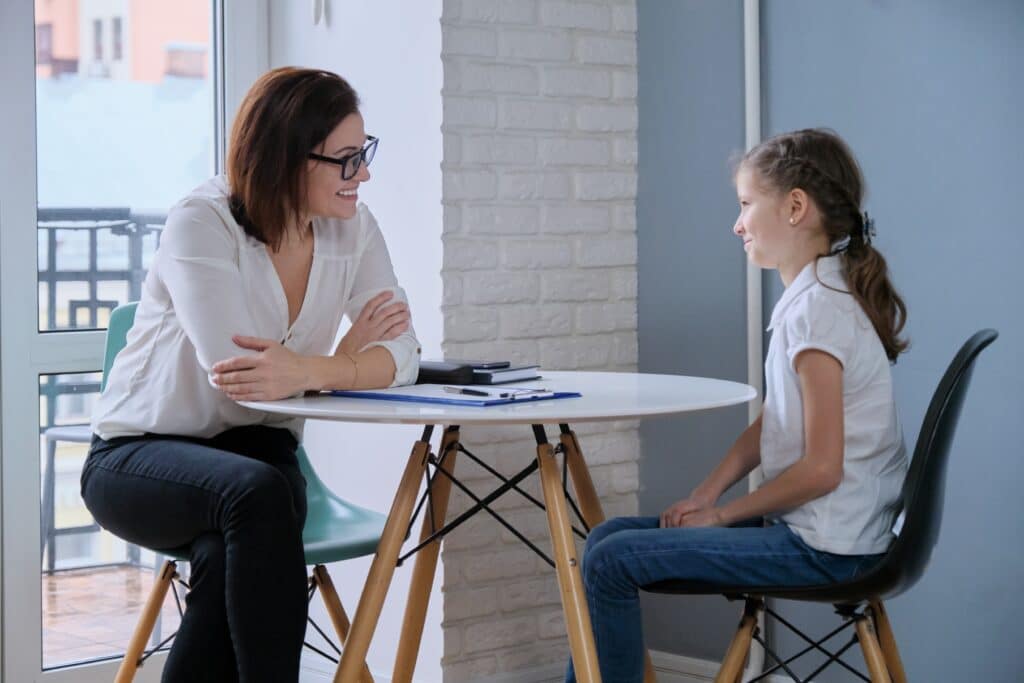There is general agreement among the bench and bar that parents should not call their children as witnesses in their divorce of post-decree modification cases. Putting any child on the stand is a traumatic experience and one that usually makes them pick sides. On the other hand, while there are a lot of ways a child’s views can be made known to a court, such as a custody evaluation, sometimes with older children or in very unique circumstances, a party wants a judge to hear the child directly address the Court. This can be done outside the litigants’ presence. This is called an in-camera interview and is allowed in Indiana by statute.1
The place to start if you are considering this route is to understand exactly what an in-camera interview does. While there are variations, an in-camera interview may be conducted by the attorneys asking the children questions in the courtroom and placed on the record, with the parents being excused. In a common variation, an in-camera interview may be conducted by the judge of the children in his or her office, and different judges decide whether to allow the attorneys to be present and whether it is recorded (on the record). The judge may ask all of the questions and/or allow the attorneys to ask questions. It is key to note judges have a great deal of discretion to grant a request for an in-camera interview and the process by which to conduct the in-camera in the children’s best interests.
This noted, there a number of risks with an in-camera interview that you must consider with your counsel to decide whether to request such. First, the judge may hold a ruling on the request until the close of trial to see what evidence has been presented. If this is the case, the judge could then deny the request and the children’s voice is not heard at all, meaning you might have been better off using a custody evaluator or guardian ad litem and having him or her present what is in the children’s best interests in court. Seasoned domestic counsel will be able to guide you into making a sound choice as to whether to request an in-camera interview. Second, some in-camera interviews are not recorded, which means if the judge relies on the child’s testimony and there is no record of what was said, there is a limited ability to challenge the court’s ruling on appeal. Third, some judges will flatly deny all requests for an in-camera interview because depending on the child’s statements and/or disclosures it could make the judge a “witness”, although judges are incompetent witnesses.2 In addition, a private meeting with a child could result in a false allegation by the child against the judge. Thus, the in-camera interview is a tool that must be carefully weighed in use because of these and other risks.
Against this backdrop, you may be asking yourself why would any litigant take this risk? That is a fair question, but every case is unique and there are foreseeable reasons to request an in-camera interview. Perhaps the most common (although in-camera interviews are not a common occurrence in any divorce or post-decree scenario) is with a child of advanced age and maturity who has strong feelings about wanting to live with the other parent (and a basis of the modification action). In this scenario, both sides could want an in-camera. Presupposing the reason the child wants to live with the other parent is that there are fewer rules, the parent having custody could believe when the child is interviewed that judge will assess this as not in the child’s best interests and deny the modification. Equally, the laxer parent may believe a more rigid-to-militant approach of the custodial parent will be apparent to the judge in an in-camera and bolster their modification case, as an older child has to start making good and bad decisions and facing consequences to be prepared for the adult world.
All domestic cases involving children and/or property are unique and complex, some more so than others depending upon the legal goal a litigant is trying to obtain. That said, a skilled divorce attorney can guide you through the process and help you determine which legal tool, such as an in-camera interview request, best presents your case. Ciyou & Dixon, P.C. attorneys handle domestic cases of all types throughout the state. We hope this blog on in-camera interviews gives you insight into the vast array of tools that exist in divorce law to help a court make a custody decision in a child’s best interests. This blog is not intended as specific legal advice or a solicitation for services. It is an advertisement.








